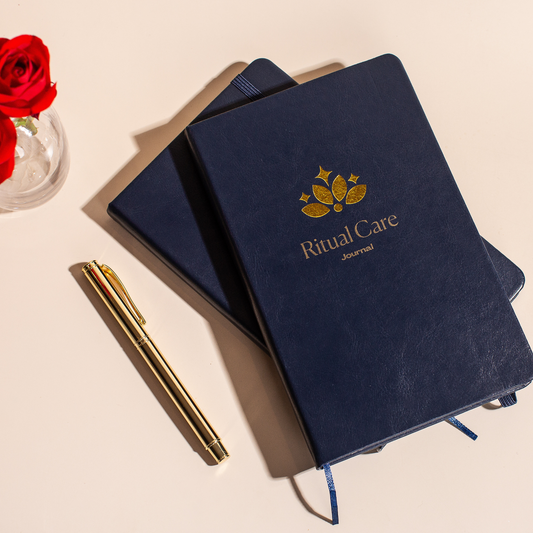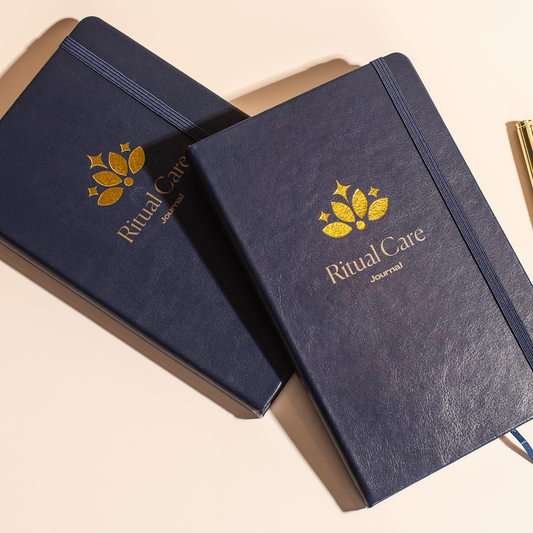For many people, it’s hard to imagine a time when work fits into a finite timeframe: same start time each day and when it’s over, it’s actually over.
The technology of the past few decades has resulted in a large number of trades and professions working longer and more often. It’s also made it more difficult to disengage, even when you’re not there. Because of that, it’s become increasingly important to create your own healthy boundaries and methods for unwinding during leisure time.
What’s relaxing to one person may not be the same for another. It’s up to you to determine what brings you a sense of calm. As you begin to ponder just that, the following relaxing activities may help.
The body responds to water immersion by releasing stress and tension. Warm water, in particular, relaxes contracted muscles and keeps them loose. Floating or swimming in baths, pools, or other bodies of tranquil water can transition brainwaves from active to theta, a lower-frequency state in which the senses are withdrawn from the external world and moved into the realm you experience as you wake or drift off to sleep.
The meditative state queued up by water also activates the brain's default mode network, the one that causes you to daydream. As the brain wanders free of stimulation, that’s when creativity and problem-solving naturally kicks in. What’s more calming than sitting back and not forcing solutions? Soak, float, or swim, and the answers may come to you.
Music connects with the automatic nervous system—brain function, blood pressure, and heartbeat—and the limbic system, where your feelings and emotions live.
If you feel stressed, your nervous system releases stress hormones like adrenaline and cortisol. Listening to music can switch the stress response to “off” and help your mind and emotions recover from the stress of the day faster than they would without music. In other words, listening to music can have positive effects on your mood and acts as a form of relaxation.
Additionally, naturalistic sounds, such as the ebb and flow of the ocean tide or leaves rustling in the wind, are reported to promote relaxation. Researchers at Brighton and Sussex Medical School did a sound study on 17 healthy adults. The participants received functional magnetic resonance imaging scans, which measure brain activity by detecting changes associated with blood flow, as they listened to a series of five-minute soundscapes of natural and manmade environments. The nature sounds correlated with an increase in the autonomic nervous system’s parasympathetic response or “rest-digest” response, which helps the body relax.
Of course, what you read matters. A survey from the American Psychological Association found that more than half of the people who participated said that reading news causes them stress. With that in mind, you might want to avoid the news headlines after work as you’re trying to wind down. However, reading a novel has been shown to reduce anxiety. Stories can help the reader relate to the hero’s journey and increase compassion to our own and other people’s suffering, which can aid in healing and a calmer feeling overall.
So, when you get in bed at the end of a long day, have a book in hand and enjoy a good night’s sleep.
Rumination or obsessive thinking, especially about anything that’s perceived to be negative, is associated with anxiety and depression.
Taking your thoughts and feelings out of your head and body and putting them onto a screen or a piece of paper can help stop the swirling cycle. Particularly if you had a bad day, dedicate the first 20 minutes after work to jotting down or typing out everything that caused your day to be rubbish. Also, write down how it all made you feel or what mood it put you in. Don’t hold back. After you’re done, observe. Does your mind feel clearer? Do you feel less wound up? If you feel more relaxed, consider adding a regular journaling practice to your post-work routine.
Just as much as journaling can be therapeutic for getting out the bad, it can also reinforce the good. Because the brain is unable to focus on positive and negative information at the same time, according to neuroscientist and author Alex Korb, keeping a daily gratitude journal can train the mind to lock in the positive. Practicing gratitude is linked to a host of health benefits, including reduced stress levels, greater physical and mental health, improved self-esteem, and more.
Meditation can help bring you to the here and now. In the most general definition, meditation uses a set of techniques to help focus your attention on the present moment.
There are many kinds of meditation, and beginners oftentimes find walking meditation the easiest. Also called kinhin or mindful walking, walking meditation is a moving meditation from the Buddhist tradition that calls for keeping your eyes open and using the experience of walking as the focal point. Unlike some other forms of mindfulness and meditation, where you focus on the breath, mindful walking meditation encourages breathing without effort.
You may find it easier to be more aware of your body during a walking meditation than a sitting meditation. When you’re moving instead of sitting, you will feel sensations in your body—your feet repeatedly touching the ground, your arms gently swinging back and forth, and so on. Additionally, walking meditation encourages exercise, which has also been known effective as a form of stress relief. Learn more about how to practice walking meditation to reduce stress here.
Although cracking up might seem more like an invigorating activity, the calm is in the moments that immediately follow.
Laughter decreases serum levels of cortisol, one of the body’s main stress hormones. Additionally, laughter releases endorphins, which are the chemicals produced by the nervous system to cope with pain or stress.
How do you arrive at the kind of laughter that makes your belly ache, eyes water, and face hurt? That’s up to you to decide. For me, it’s jokes from my dry-witted friends, YouTube videos of animals doing ridiculous things, funny shows like “The Office,” and a handful of comedic Instagram accounts.
Seek out whatever makes you laugh—and seek it out often—to enjoy the benefits of cracking up.
On the broader topic: Seek out relaxation exercises that you find calming, be it one or all of the aforementioned suggestions—or something completely different. A calmer state will help you power down your body and mind and eventually rest so you can be ready for whatever tomorrow brings. And if you find that no relaxing activities can help calm you down post-work, then it might be time to reflect on whether your job itself needs to change to rid you of your stress and anxiety.
*Editor’s Note: The information in this article is intended for your educational use only and is not a substitute for professional medical advice, diagnosis, or treatment. Always seek the advice of your physician or other qualified health providers with any questions you may have regarding a medical condition and before undertaking any diet, supplement, fitness, or other health programs.
Explore breathwork practices that support the whole self with Breathwork for Balance, a four-part collection with Eddie Stern, available now in the Chopra App.
The technology of the past few decades has resulted in a large number of trades and professions working longer and more often. It’s also made it more difficult to disengage, even when you’re not there. Because of that, it’s become increasingly important to create your own healthy boundaries and methods for unwinding during leisure time.
What’s relaxing to one person may not be the same for another. It’s up to you to determine what brings you a sense of calm. As you begin to ponder just that, the following relaxing activities may help.
1. Soak, Float, or Swim
Ancient cultures have long believed in the healing effects of water. The Japanese, for example, partake in communal baths known as sento as a way to cleanse the body and the mind.The body responds to water immersion by releasing stress and tension. Warm water, in particular, relaxes contracted muscles and keeps them loose. Floating or swimming in baths, pools, or other bodies of tranquil water can transition brainwaves from active to theta, a lower-frequency state in which the senses are withdrawn from the external world and moved into the realm you experience as you wake or drift off to sleep.
The meditative state queued up by water also activates the brain's default mode network, the one that causes you to daydream. As the brain wanders free of stimulation, that’s when creativity and problem-solving naturally kicks in. What’s more calming than sitting back and not forcing solutions? Soak, float, or swim, and the answers may come to you.
2. Listen to Music and Calming Sounds
Music connects with the automatic nervous system—brain function, blood pressure, and heartbeat—and the limbic system, where your feelings and emotions live.
If you feel stressed, your nervous system releases stress hormones like adrenaline and cortisol. Listening to music can switch the stress response to “off” and help your mind and emotions recover from the stress of the day faster than they would without music. In other words, listening to music can have positive effects on your mood and acts as a form of relaxation.
Additionally, naturalistic sounds, such as the ebb and flow of the ocean tide or leaves rustling in the wind, are reported to promote relaxation. Researchers at Brighton and Sussex Medical School did a sound study on 17 healthy adults. The participants received functional magnetic resonance imaging scans, which measure brain activity by detecting changes associated with blood flow, as they listened to a series of five-minute soundscapes of natural and manmade environments. The nature sounds correlated with an increase in the autonomic nervous system’s parasympathetic response or “rest-digest” response, which helps the body relax.
3. Read
Reading has been shown to create an inner calm by putting our minds into a trance-like state, slowing down the heart rate, and relaxing the muscles. One study showed that reading for even six minutes a day reduced stress by 68 percent.Of course, what you read matters. A survey from the American Psychological Association found that more than half of the people who participated said that reading news causes them stress. With that in mind, you might want to avoid the news headlines after work as you’re trying to wind down. However, reading a novel has been shown to reduce anxiety. Stories can help the reader relate to the hero’s journey and increase compassion to our own and other people’s suffering, which can aid in healing and a calmer feeling overall.
So, when you get in bed at the end of a long day, have a book in hand and enjoy a good night’s sleep.
4. Journal
Rumination or obsessive thinking, especially about anything that’s perceived to be negative, is associated with anxiety and depression.
Taking your thoughts and feelings out of your head and body and putting them onto a screen or a piece of paper can help stop the swirling cycle. Particularly if you had a bad day, dedicate the first 20 minutes after work to jotting down or typing out everything that caused your day to be rubbish. Also, write down how it all made you feel or what mood it put you in. Don’t hold back. After you’re done, observe. Does your mind feel clearer? Do you feel less wound up? If you feel more relaxed, consider adding a regular journaling practice to your post-work routine.
Just as much as journaling can be therapeutic for getting out the bad, it can also reinforce the good. Because the brain is unable to focus on positive and negative information at the same time, according to neuroscientist and author Alex Korb, keeping a daily gratitude journal can train the mind to lock in the positive. Practicing gratitude is linked to a host of health benefits, including reduced stress levels, greater physical and mental health, improved self-esteem, and more.
5. Try a Walking Meditation
Harvard psychologists Matthew Killingsworth and Daniel Gilbert discovered that people feel relaxed and content when thoughts and actions align. It can be challenging to marry the two, especially after a long day or night of work. You want to relax, but your mind might still be thinking about the meeting that didn’t go so well or the project that’s laden with challenges. And your body knows it needs to eat dinner, so you’re trying to prepare a meal while also half-listening to your partner talk about their day.Meditation can help bring you to the here and now. In the most general definition, meditation uses a set of techniques to help focus your attention on the present moment.
There are many kinds of meditation, and beginners oftentimes find walking meditation the easiest. Also called kinhin or mindful walking, walking meditation is a moving meditation from the Buddhist tradition that calls for keeping your eyes open and using the experience of walking as the focal point. Unlike some other forms of mindfulness and meditation, where you focus on the breath, mindful walking meditation encourages breathing without effort.
You may find it easier to be more aware of your body during a walking meditation than a sitting meditation. When you’re moving instead of sitting, you will feel sensations in your body—your feet repeatedly touching the ground, your arms gently swinging back and forth, and so on. Additionally, walking meditation encourages exercise, which has also been known effective as a form of stress relief. Learn more about how to practice walking meditation to reduce stress here.
6. Laugh Until Your Belly Aches
Although cracking up might seem more like an invigorating activity, the calm is in the moments that immediately follow.
Laughter decreases serum levels of cortisol, one of the body’s main stress hormones. Additionally, laughter releases endorphins, which are the chemicals produced by the nervous system to cope with pain or stress.
How do you arrive at the kind of laughter that makes your belly ache, eyes water, and face hurt? That’s up to you to decide. For me, it’s jokes from my dry-witted friends, YouTube videos of animals doing ridiculous things, funny shows like “The Office,” and a handful of comedic Instagram accounts.
Seek out whatever makes you laugh—and seek it out often—to enjoy the benefits of cracking up.
On the broader topic: Seek out relaxation exercises that you find calming, be it one or all of the aforementioned suggestions—or something completely different. A calmer state will help you power down your body and mind and eventually rest so you can be ready for whatever tomorrow brings. And if you find that no relaxing activities can help calm you down post-work, then it might be time to reflect on whether your job itself needs to change to rid you of your stress and anxiety.
*Editor’s Note: The information in this article is intended for your educational use only and is not a substitute for professional medical advice, diagnosis, or treatment. Always seek the advice of your physician or other qualified health providers with any questions you may have regarding a medical condition and before undertaking any diet, supplement, fitness, or other health programs.
Explore breathwork practices that support the whole self with Breathwork for Balance, a four-part collection with Eddie Stern, available now in the Chopra App.






















